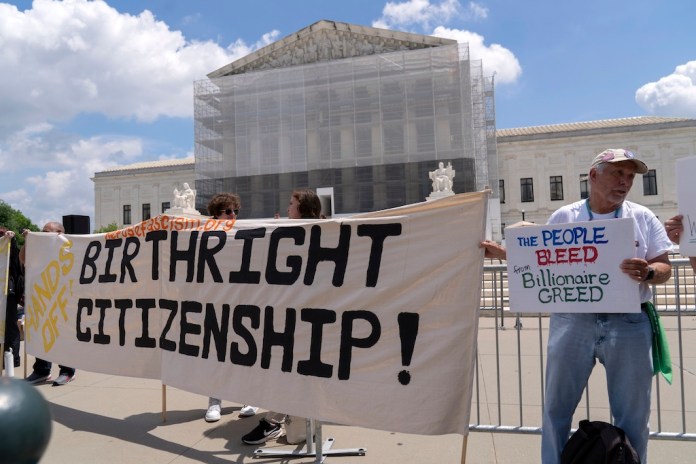Trump Admin Is Legally Required To Shut Down The CFPB
The Consumer Financial Protection Bureau (CFPB), created under Dodd-Frank after the 2008 financial crisis, is criticized as an unconstitutional and unaccountable agency that bypasses Congress’s funding authority and the president’s control. Acting Director Russell Vought plans to shut down the CFPB due to its funding mechanism relying illegally on the Federal Reserve’s “combined earnings,” which have been negative as 2022, making continued funding unlawful. Critics like Sen. Elizabeth Warren view this as political, but supporters argue it is indeed a necessary return to the rule of law. The CFPB duplicates roles of other agencies and has engaged in ideological overreach, justifying the need to restore congressional control over spending. The Trump governance’s stance and recent court decisions emphasize the agency’s structural weaknesses and the need for accountability. Shutting down the CFPB is framed as restoring constitutional checks and balances, reaffirming that even powerful bureaucracies must be subject to democratic oversight.
By any honest reading of the Constitution, the Consumer Financial Protection Bureau (CFPB) should never have existed. Born from Dodd-Frank in the panicked and progressive aftermath of 2008, the CFPB was designed to evade two levers of government authority: Congress’s power of the purse and the president’s duty of executing the law. Its novel, insulated structure made it part of the “fourth branch” of government in all but name, an unaccountable bureaucracy levying billions in regulatory costs without ever facing the taxpayers it claims to protect.
That experiment has now reached its end. CFPB Acting Director Russell Vought plans to shut down the agency, and the Justice Department has bolstered that decision, confirming that the Federal Reserve has no “combined earnings” from which to transfer funds to the Bureau. Under 12 U.S.C. § 5497, the CFPB may only draw money from the Fed’s “combined earnings,” meaning profits. The Fed has posted operating losses since 2022, and by statute, no profits mean no funding. For years, the Bureau drew hundreds of millions of dollars despite that clear prohibition. The Trump administration is right to say enough is enough.
Critics, like Sen. Elizabeth Warren, call this a political attack. In truth, it is a return to the rule of law. The CFPB’s design was a legal conundrum — an “independent” agency housed within the Federal Reserve but answerable to neither Congress nor the president. As the Center for Renewing America has detailed, this structure turned the Bureau into a self-financing enforcement cartel, duplicating the work of the Federal Reserve, FDIC, OCC, DOJ, and FTC, while pursuing political causes under the guise of consumer protection. The Bureau’s record of ideological overreach from pressuring banks to debanking disfavored industries under “Operation Choke Point” to funding activist groups with penalty funds, shows exactly why the framers placed the power of the purse in Congress’s hands.
Acting Director Vought’s decision to request zero dollars from the Fed earlier this year for the Bureau was not politics but common sense. With over $711 million sitting idle in its account, the agency had more than enough to wind down operations responsibly. Now, as those reserves run out, the law requires accountability through appropriations. When an agency cannot lawfully pay its own bills, it cannot lawfully regulate the lives of others.
Some may insist that shuttering the CFPB will unleash chaos in the financial markets. But the truth is simpler. Every function the Bureau performs from enforcing fair lending to supervising credit unions already exists elsewhere in government or at the state level. The CFPB’s running out of funds is not an act of neglect but of proper stewardship. It can restore coherence to financial regulation and prevent further weaponization of bureaucratic power against citizens and businesses.
The decision marks a turning point for the administrative state. The Trump administration’s legal stance — grounded in the plain text of Dodd-Frank and fortified by the Supreme Court’s decisions in Seila Law and Loper Bright — signals that the age of self-funding, self-governing agencies is ending. The CFPB was the test case for unrestrained administrative power. It is fitting that it should also be one of the first to fall.
Counterarguments may point to the Supreme Court’s 2024 decision on CFPB funding as a vindication of the agency. It is nothing of the sort. The court deliberately confined itself to a narrow statutory inquiry and expressly left the agency’s broader constitutional defects untouched. Barring whether or not that decision was good constitutional law, on its own terms, it underscores the deeper problem: a bureaucracy so unusual, so insulated, and so structurally unsound that the court was unwilling to examine it beyond the smallest possible frame. That is not an endorsement of strength but a confirmation of fragility.
The D.C. Circuit said as much when it vacated an injunction against the administration’s restructuring efforts, holding that the Bureau’s planned workforce and operational changes did not amount to a reviewable “final agency action.” This leaves the real task to Congress and the executive to reclaim the power of the purse and rein in an agency that continues to operate outside the design of the Constitution.
The founders did not design government to protect citizens from lawful commerce or dissenting politics. They designed it to protect liberty through checks and balances. The CFPB broke that design. By restoring the power of the purse to Congress and the limits of law to the Executive, shrinking and shuttering the CFPB has done more than expose a constitutional fraud: it has reminded Washington that even the most entrenched bureaucracies must answer to the people.
" Conservative News Daily does not always share or support the views and opinions expressed here; they are just those of the writer."


